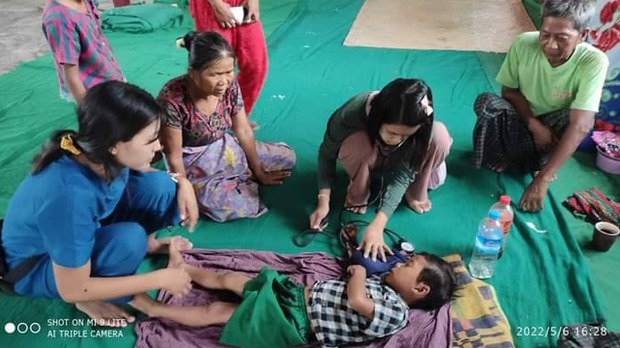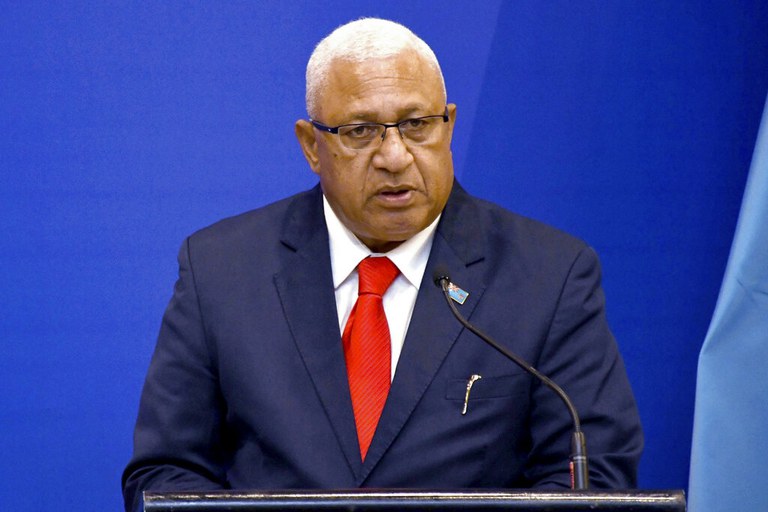Chinese forces step up exercises around Taiwan, South China Sea
China’s People’s Liberation Army (PLA) has intensified activities around Taiwan and in the South China Sea in an apparent response to the U.S. commitment to a free and open Indo-Pacific, as well as its support for Taipei. The PLA’s Eastern Theatre Command recently conducted a multi-force patrol “in the waters and airspace around the Taiwan Island,” said an army spokesman. This is the third large-scale military exercise around Taiwan in the past 30 days. Senior Colonel Shi Yi, spokesperson for the PLA Eastern Theater Command, said the joint combat-readiness security patrol involved “multiple services and arms,” but did not specify the date. “These actions are a necessary response to the collusion activities between the U.S. and the ‘Taiwan independence’ forces,” Shi said. He added that the U.S. “has been making frequent moves on the Taiwan question recently,” and warned that by emboldening and supporting Taiwan, Washington “will put Taiwan in a dangerous situation and bring serious consequences to itself.” Last weekend two U.S. aircraft carriers – the USS Abraham Lincoln and the USS Ronald Reagan – reportedly conducted dual-carrier exercises in waters to the southeast of Okinawa, according to the South China Sea Strategic Situation Probing Initiative (SCSPI), a Beijing-based think tank. Chinese analysts say the area could be a main maritime battlefield if the U.S. militarily intervened in a possible conflict across the Taiwan Strait. A U.S. delegation led by Senator Tammy Duckworth has just completed a three-day visit to Taipei to “talk about our support for Taiwan security.” The U.S will also make sure Taiwan “does not have to struggle alone,” Duckworth told Taiwanese President Tsai Ing-wen, who said that a cooperation plan between the U.S. National Guard and Taiwan’s armed forces was in the works. On the day of her arrival, 30 Chinese aircraft flew into Taiwan’s air defense identification zone (ADIZ), making it the second-highest number of daily incursions since the beginning of the year. The senator’s visit has infuriated Beijing. A Chinese Foreign Ministry spokesman said China “deplores and rejects this and has lodged solemn representations with the U.S. side.” South China Sea drills On Wednesday morning the PLA conducted a military exercise in waters south of Hainan island in the South China Sea, according to a navigation warning issued by the Hainan Maritime Safety Administration. A navigation warning is a public advisory notice to mariners about changes to navigational aids and current marine activities or hazards including fishing zones and military exercises. The warning did not specify what kind of military exercise took place but the coordinates provided indicate the location was just south of Hainan, not far from the Gulf of Tonkin that China shares with Vietnam. Meanwhile on Wednesday Taiwan’s Ministry of Foreign Affairs (MOFA) condemned the harassment by the Chinese Coast Guard of a joint Filipino-Taiwanese research vessel in the South China Sea in April, calling it “a breach of a United Nations convention.” A day earlier, the Philippines summoned a senior Chinese diplomat to protest over the incident. From late March to early April, the China Coast Guard (CCG) tailed the Legend, a Taiwanese research vessel with Filipino scientists, as it mapped undersea fault lines in the waters northwest of Luzon Island in the South China Sea.




